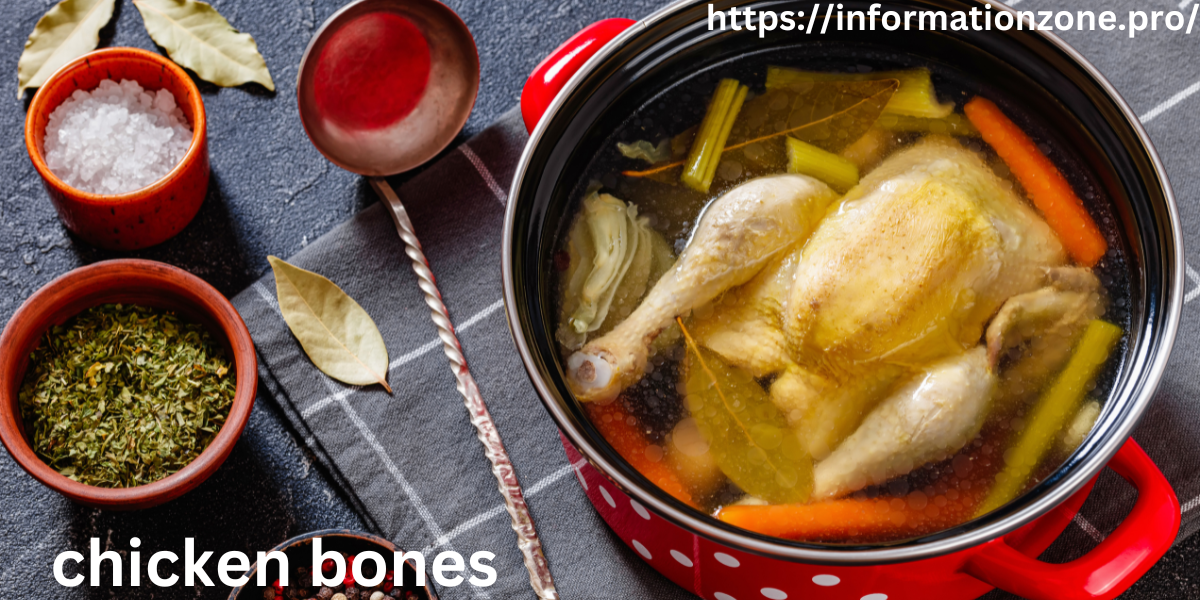Are chicken bones safe for dogs to eat?
Interoduction
Imagine this: your pet is giving you those enticing puppy eyes while you savor a tasty roast chicken dinner. If there are any juicy chicken bones among the leftovers, you may be tempted to give them a small taste. But let’s pause for a second before you throw that bone at them. Whether chicken bones are okay for our four-legged friends is a question that many dog owners have. This issue has generated a lot of discussion among veterinarians and pet owners. Are they a delicious pleasure or a recipe for trouble? Let’s examine chicken bones in more detail and discover what every responsible dog owner has to know!
The Debate: Are Dogs Allowed to Eat Chicken Bones?
Giving chicken bones to dogs can be a contentious topic. Some pet owners vouch for it, saying that their dogs adore them and that they provide them a nice chew. Many veterinarians advise against this treatment nonetheless.
Particularly contentious are cooked chicken bones. They are dangerous if consumed since they shatter readily. These sharp pieces have the potential to lacerate the digestive tract or induce choking.
However, proponents of raw chicken bones contend that they are softer and less prone to splinter. However, there are additional worries about pathogens like Salmonella or E. coli with raw choices.
This contradiction has caused many dog owners to wonder if it’s better for their animals to prioritize safety or give in to their inclinations. Making educated decisions on your dog’s nutrition and well-being requires that you comprehend all sides.
Recognizing the Hazards and Perils
There are serious risks associated with offering your dog chicken bones, even though the idea may appear innocent. Bones from cooked chicken can readily splinter. Sharp pieces could seriously harm your dog’s digestive system when they break apart.
Choking or intestinal and esophageal obstructions may result from these fragments. Your pet may experience discomfort, but it might also turn into a life-threatening situation that needs to be treated by a veterinarian right away.
The risks are even greater with uncooked chicken bones. They may include dangerous bacteria like Campylobacter or Salmonella, which can infect both people and pets.
When choosing whether to serve chicken bones as treats, it’s important to carefully consider these hazards. It’s easier to keep your pet safe and healthy when you know what’s at risk.
Things to Watch Out for When Giving Your Dog Chicken Bones
It’s important to give your dog chicken bones with caution. Certain bones are more dangerous than others, and not all bones are made equal. Never use cooked chicken bones; always use raw ones. Cooking can make the bones brittle, increasing the chances they will splinter.
Before offering any bone to your furry friend, inspect it closely. Ensure there are no sharp edges or small fragments that could cause choking concerns.
Limit the size of the bone based on your dog’s breed and size; smaller dogs should have smaller bones to minimize any potential complications.
While your dog is enjoying their treat, keep an eye on them. This enables you to step in if they have trouble swallowing or attempt to swallow big chunks whole.
Talk to your veterinarian before feeding your dog chicken bones, particularly if they have a history of dietary sensitivities or stomach issues.
Things to Watch Out for When Giving Your Dog Chicken Bones
It’s important to give your dog chicken bones with caution. Certain bones are more dangerous than others, and not all bones are made equal. Never use cooked chicken bones; always use raw ones. Bones that have been cooked may become brittle and more likely to shatter.
Examine each bone carefully before giving it to your pet. Make sure there aren’t any tiny pieces or sharp edges that could choke someone.
Limit the size of the bone according to the size and breed of your dog; in order to prevent any possible problems, smaller dogs should have smaller bones.
While your dog is enjoying their treat, keep an eye on them. This enables you to step in if they have trouble swallowing or attempt to swallow big chunks whole.
If your dog has a history of stomach issues or dietary sensitivities, speak with your veterinarian about adding chicken bones to their diet.
Conculsion
In conclusion, chicken bones are not only a valuable byproduct in cooking, providing rich flavor and essential nutrients when used for making broths or stocks, but they also promote sustainability by reducing waste. While they offer nutritional benefits, such as minerals and collagen, it’s important to handle them safely and avoid giving cooked bones to pets due to the risk of splintering. When used responsibly, chicken bones are a versatile and beneficial component in both culinary practices and overall health.






